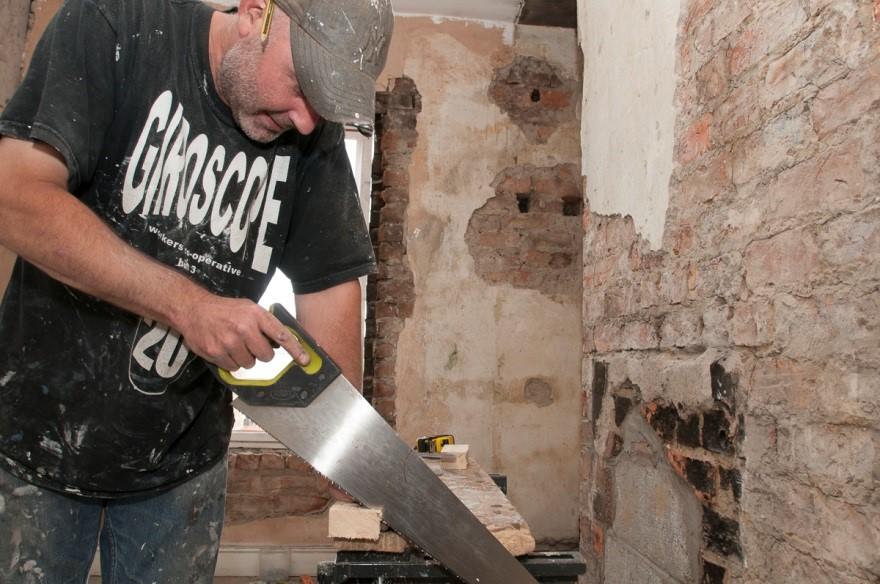Overview
- Giroscope is a community-based housing charity in west Hull where it has operated for over thirty years. It is one of the pioneers of the self-help housing part of the CLH sector
- Giroscope was conceived in the mid-1980s by a group of students and young unemployed people who decided to take direct action to resolve their own housing situation. Establishing a Workers’ Cooperative and registering as a Limited Company in the summer of 1986, Giroscope members purchased their first house using their Giro cheques for a deposit and set about redeveloping the property to provide accommodation for the unemployed
- Involving volunteers and creating training and employment opportunities is integral to the work that Giroscope now undertakes in refurbishing vacant property. Over 35 volunteers are now working on site and in the office on a daily basis
- Volunteers are generally disadvantaged and excluded people and include ex-offenders, refugees, long term unemployed, people with mental health issues and learning difficulties
- Volunteers are supervised both on and off site and given a bespoke package of training and support to meet their needs, overseen by a Volunteer Support Worker
- Volunteers get a range of ‘hands on’ construction work opportunities, plus training in Health & Safety (CSCS) and also basic skills in Maths/English/IT. Volunteers are helped to access local colleges when they are ready
- Giroscope employs a Building Services Manager who oversees the building work, the construction staff and the volunteers. Many of Giroscope’s paid staff are drawn from the volunteer programme and work alongside selected sub-contractors
- Giroscope is now about to start its first new build CLH project. To be built on land to the rear of the Giroscope office in west Hull, the self-build project in the heart of the community aims to break ground in spring 2018, with the tenants directly involved in the construction of the buildings
- This CLH project will be a pilot for creating sustainable, replicable and affordable rented homes that could be used to develop other vacant plots of land in Giroscope’s neighbourhood
Key Messages
- Refurbishment offers a wide range of opportunities in terms of different building skills; carpentry, plumbing, bricklaying, plastering, tiling and decorating
- Working on individual properties, rather than on a single large build, makes it possible to repeat training in relation to different trades, property by property
- Offering training and employment to excluded and disadvantaged people helps in re-integrating them into the world of work
- Good supervision by someone with a wide knowledge of building skills is essential and requires funding
- While use of volunteers can reduce expenditure in certain respects it can also add to the cost of renovations because of the need to supervise and train people who sometimes have no skills or experience
Published in March 2018



